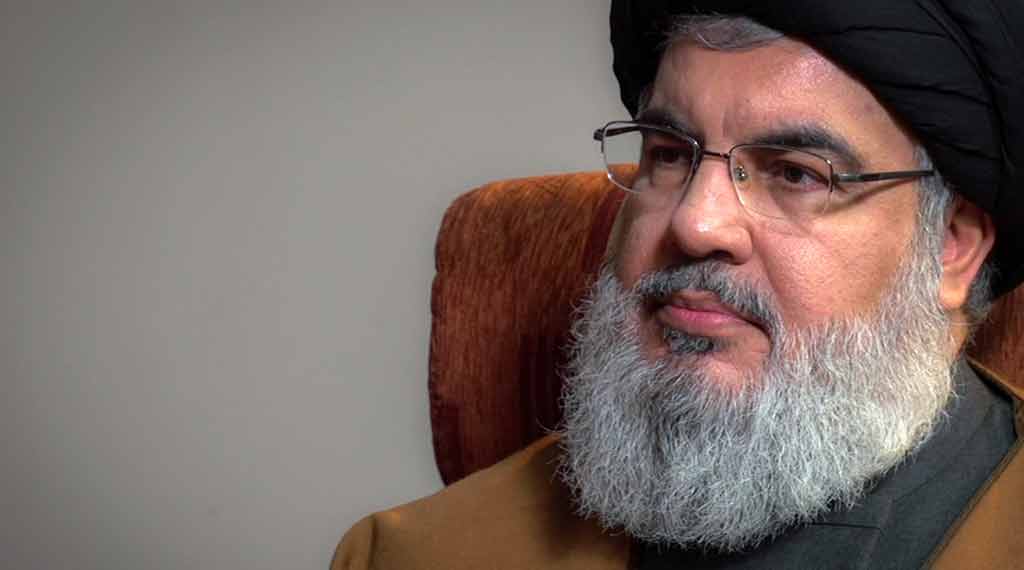
One thing can be said about establishment media propagandists: they never miss an opportunity to manipulate the public and make it think they way they want it to think. And they aren’t nearly as subtle as they think they are.
The contrast couldn’t be more stark. When Sen. Jim Inhofe (R-Okla.) died last summer, the Associated Press headline was “Former Sen. Jim Inhofe, defense hawk who called human-caused climate change a ‘hoax,’ dies at 89.” But when Hezbollah top dog Hassan Nasrallah was killed in an Israeli airstrike Friday, AP ran a piece entitled “Charismatic & shrewd: A look at longtime Hezbollah leader Hassan Nasrallah.” After howls of outrage and cascades of ridicule, AP altered its headline, but it wasn’t by any means alone. In their coverage of Nasrallah’s death, several establishment media outlets have made it unmistakable: they love jihad terror mass murderers far more than they do patriots or even establishment Republicans.
Even after it was revised, AP’s story reads like something out of a Hezbollah fan magazine. Nasrallah was “an astute strategist.” He was “idolized by his Lebanese Shiite followers and respected by millions of others across the Arab and Islamic world.” He even “held the title of sayyid, an honorific meant to signify the Shiite cleric’s lineage dating back to the Prophet Muhammad, the founder of Islam.”
Nasrallah was also, AP tells us, “a fiery orator” who was “viewed as an extremist in the United States and much of the West.” Note that while Nasrallah was only an “extremist” in the U.S. and the West, the assertion that he was an “astute strategist” is presented as sober, objective truth.
AP wasn’t alone. Not to be outdone, the Washington Post said that “among his followers, Mr. Nasrallah was seen as a father figure, a moral compass and a political guide. He was lauded as the man who empowered Lebanon’s once downtrodden and impoverished Shiite community and protected it from Israeli incursions by turning Hezbollah into a formidable deterrent force.” He spoke in a “folksy yet articulate manner that established him as a skilled orator.”
The WaPo even went so far as to award Nasrallah the left’s coveted victim status: “The death of his 18-year-old son, Hadi, in a battle with Israel in 1997 burnished Mr. Nasrallah’s leadership credentials, establishing him as a man who had shared in the suffering of those battling the Israeli occupation.”
The New York Times was just as hagiographical, noting that “in Lebanon, Mr. Nasrallah developed a force of thousands of grass-roots fighters — schoolteachers and butchers and truck drivers — and used religion to inspire them to fight until death, analysts say, telling them they would have a guaranteed spot in heaven.” He “enjoyed tremendous devotion from Hezbollah’s Shiite Muslim base, who saw in him a charismatic religious and political leader and military strategist who had dedicated his life to ‘resistance,’ or the fight against Israel and American influence in the Middle East.”
None of these three revered news outlets bothered to mention the fact that there was a bit more to Hassan Nasrallah than a portly, lovable lug who led a “resistance” struggle. None of them quoted one of his most notorious sayings: “If they (Jews) all gather in Israel, it will save us the trouble of going after them worldwide.”
That was in 2002. But Nasrallah did not grow mellower with age. Early in Aug. 2024, a spokesperson for the Permanent Mission of the Islamic Republic of Iran to the United Nations announced, according to the Jerusalem Post, that Hizballah “would begin deliberately targeting Israeli civilians.” This was after a Hizballah rocket killed twelve Druze children who were playing soccer in a field.
- Hezbollah wants a ceasefire now. Here’s why Israel shouldn’t give them one. - October 17, 2024
- Media heaps praise on slain Hezbollah top dog Nasrallah - October 9, 2024
- The decline and fall of the Iranian empire - October 1, 2024
